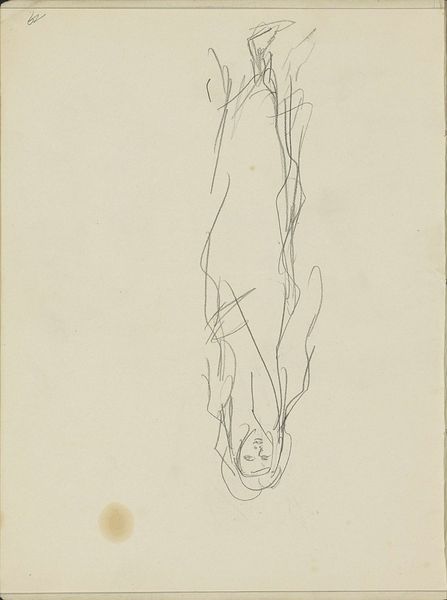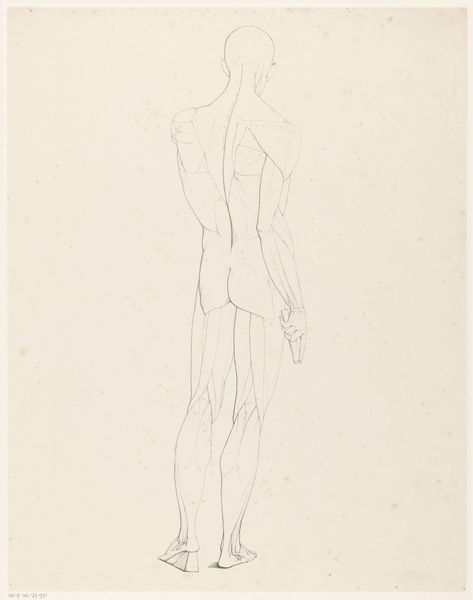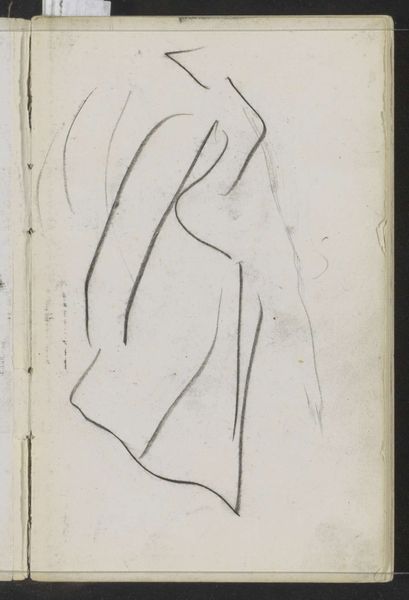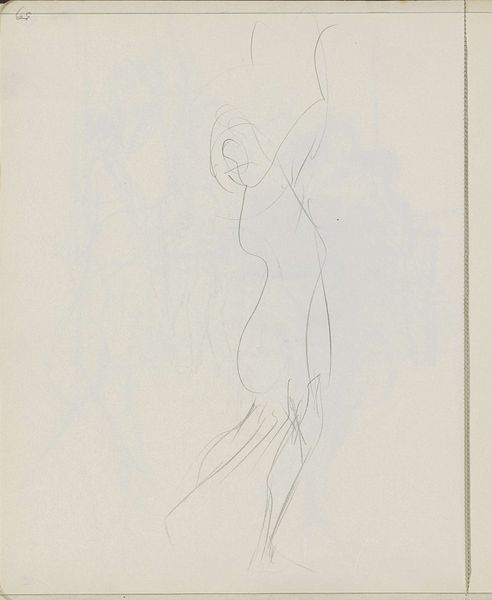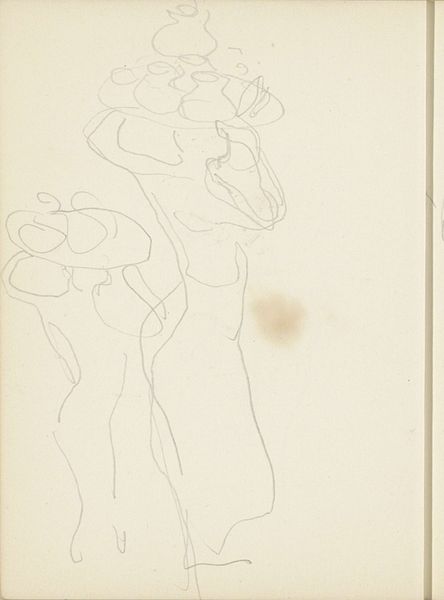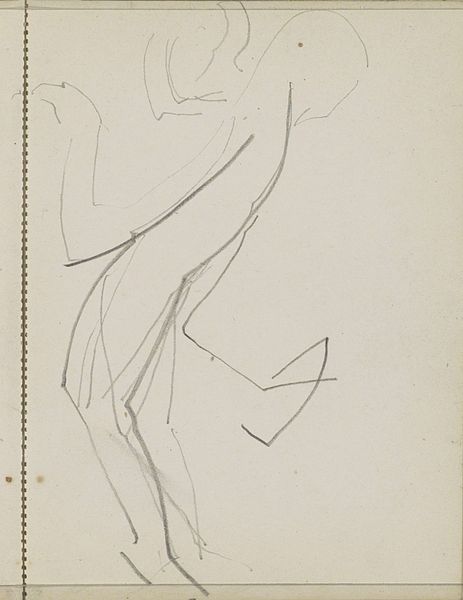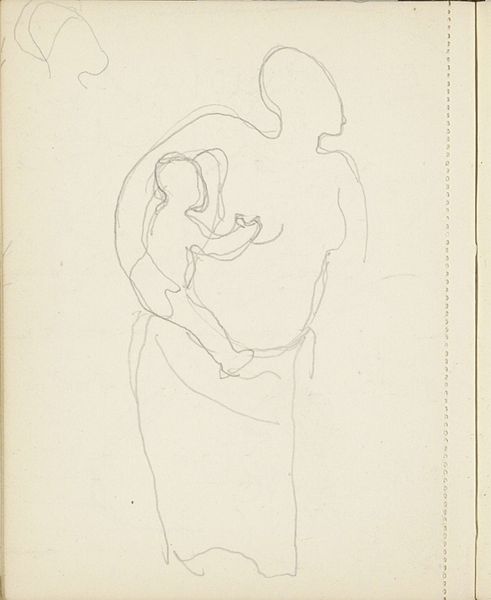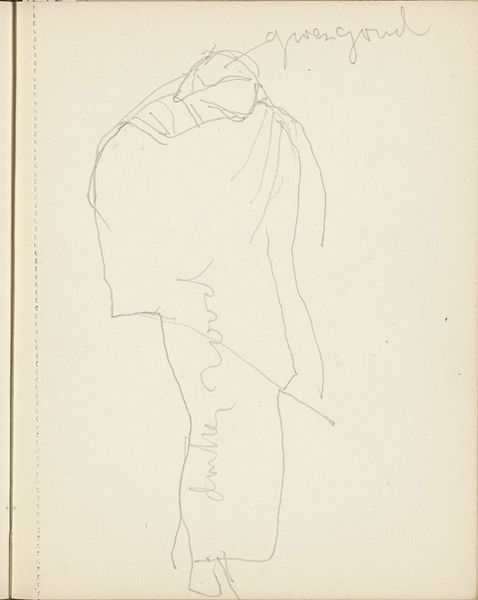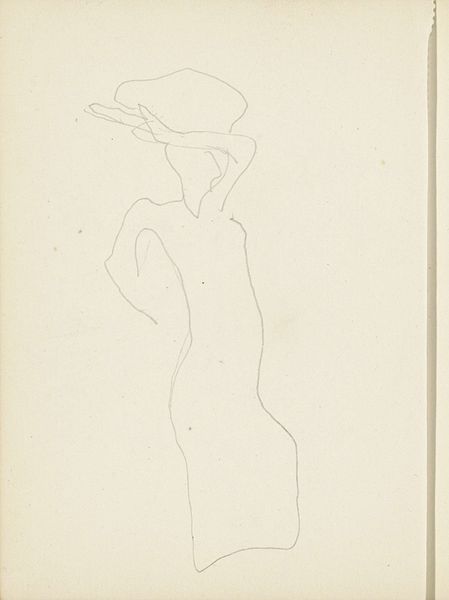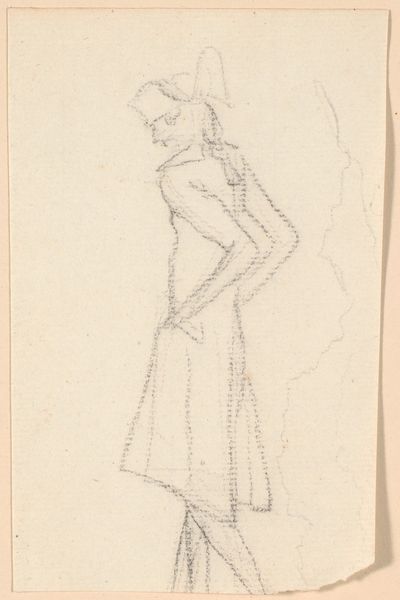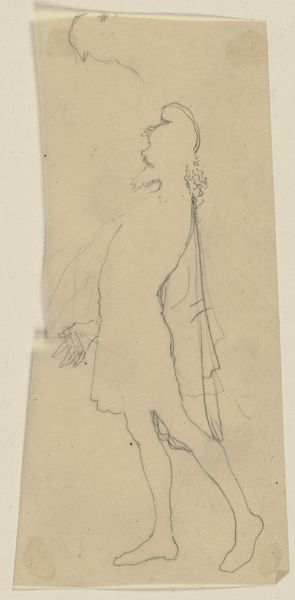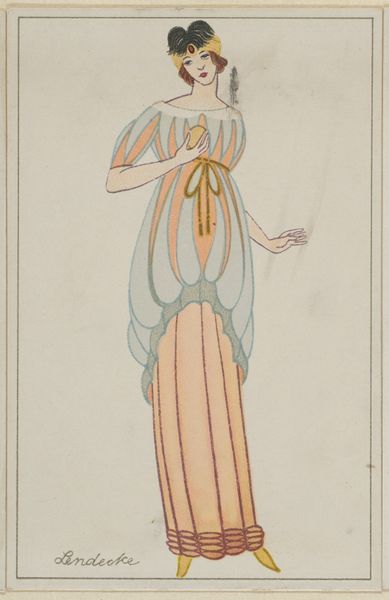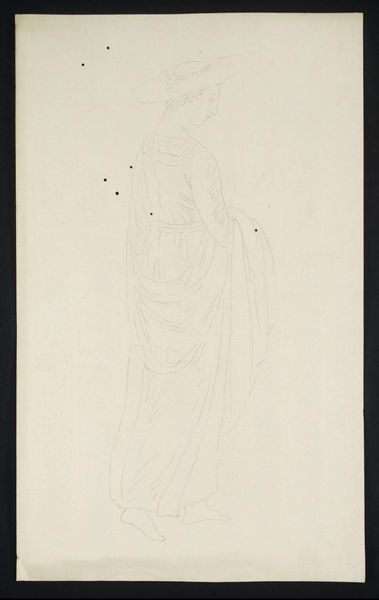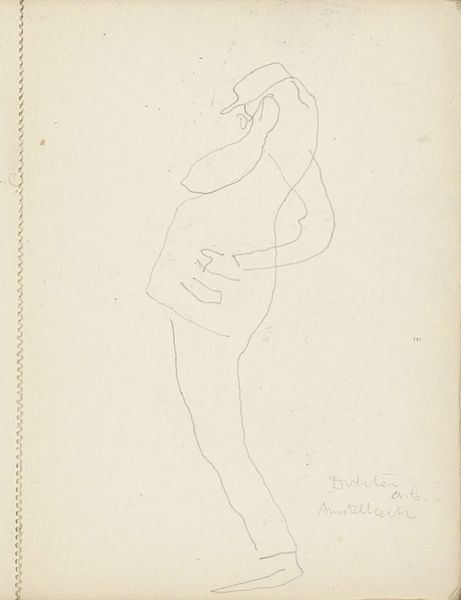
drawing, paper, pencil
#
portrait
#
african-art
#
drawing
#
figuration
#
paper
#
sketch
#
pencil
Copyright: Rijks Museum: Open Domain
Curator: Before us, we have Reijer Stolk's pencil drawing on paper, titled "Afrikaanse vrouw die een last op het hoofd draagt," which translates to "African Woman Carrying a Load on Her Head." The artwork's creation is estimated sometime between 1916 and 1945. Editor: It’s so minimal! Just a few pencil lines really, yet the impression is immediate. I see weariness, maybe a quiet strength. Curator: Absolutely, there's a striking sense of the figure’s posture conveying a narrative of labor and resilience. Sketches such as these offer glimpses into the artistic processes of the time, often overshadowed by grander finished works. Consider the colonial dynamics at play during those decades; how does this depiction challenge or reinforce those perceptions? Editor: That's a key point. Even in this quick sketch, there's the instantly recognizable visual motif of the head-carried burden which symbolizes not only physical work, but also, for many cultures across Africa and beyond, echoes ancient iconography, of female resilience and sustained burdens of family life and societal expectation. That silhouette, though spare, evokes a history. Curator: Indeed. The absence of precise details compels us to project our own interpretations and assumptions, but also perhaps reflects a certain detachment from the subject, common within the colonial gaze during that period. Editor: It makes me think of similar imagery—atlas figures, the caryatids holding up structures. This figure, though humble, is upholding something as well. It prompts reflection on who bears the invisible weights in our society. It also, as you imply, becomes important to contextualize the perspective; whether it's one of honoring, exoticizing or something else entirely, the socio-historical implications weigh as heavily as what she’s carrying on her head. Curator: Agreed. Even simple sketches can carry multifaceted narratives, offering space to re-evaluate art's relationship to societal issues and biases of a time. Editor: Absolutely, this is a quick piece that certainly encourages one to consider loaded cultural questions around representation and meaning.
Comments
No comments
Be the first to comment and join the conversation on the ultimate creative platform.
